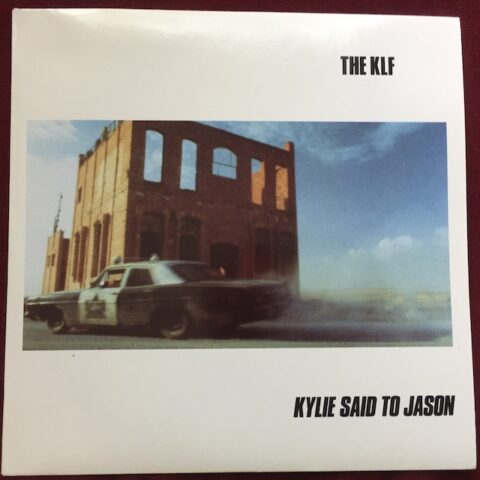Check out the 60 Minutes episode on film composer Hans Zimmer (Dune, Gladiator, Lion King, Top Gun Maverick, and many more). Watching it brought back some fond memories of Lillie Yard, the London studio co-owned by Zimmer where I interned and worked part-time in the early 1990s. It’s shown briefly in the clip below at the 9 minute mark.
The studio is now in a dilapidated state, judging by the exterior shots in another documentary about Zimmer on Netflix. But, as Zimmer says in the documentary, 6 Lillie Yard in southwest London is where it all got started.
When I was at Lillie Yard, Zimmer was working on Thelma & Louise. I didn’t see him that often. That film was one of several early collaborations with Ridley Scott and other Hollywood directors that cemented his place as one of the go-to composers for major film scores:
Zimmer’s score is an homage to country rock, the heartfelt guitar-led music that dominated the airwaves in the 1970s and 1980s via bands such as The Allman Brothers, Lynyrd Skynyrd, The Marshall Tucker Band, and many others. To ensure authenticity, Zimmer collaborated with the groundbreaking British rock and blues guitarist Pete Haycock, whose lyrical performances can be heard throughout the entire score.
Zimmer is a composer who went from Buggles to Rain Man to C&W-themed rock to Lion King to the epic sci-fi scores for Dune and Blade Runner 2049. It’s amazing. The 60 Minutes clip shows some of his creativity, including working with incredible musicians as well as his mission to create his own library of high-end musical samples, which he says took years.
 Back to Lillie Yard studio. Thanks to his early embrace of sampling, synthesizers, and other cutting-edge technologies, the studio was not only the ideal place for working on film scores, it was a great place to work on pop music. Even though Zimmer and partner Stanley Myers were rarely there when I was working there, the studio was very busy. It had a lot of cutting-edge digital and analog gear that were sought after by UK artists including The KLF who were doing singles and remixes of tracks from their album The White Room. The KLF’s record label later hired me as a label assistant, my first full-time job in media.
Back to Lillie Yard studio. Thanks to his early embrace of sampling, synthesizers, and other cutting-edge technologies, the studio was not only the ideal place for working on film scores, it was a great place to work on pop music. Even though Zimmer and partner Stanley Myers were rarely there when I was working there, the studio was very busy. It had a lot of cutting-edge digital and analog gear that were sought after by UK artists including The KLF who were doing singles and remixes of tracks from their album The White Room. The KLF’s record label later hired me as a label assistant, my first full-time job in media.
It was more than 30 years ago, but I still remember some of the producers and Lillie Yard staff who were very kind to me including Julian, Emma, Max, Dave, and Nick. I was later hired by KLF Communications, which was an incredible introduction to independent music publishing in a world dominated by larger players and platforms – lessons that carry through to today with my own publishing business. This experience wouldn’t have happened if it weren’t for Zimmer’s decision to build a cutting-edge recording studio in Southwest London.
